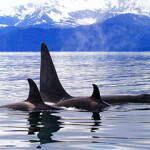New fisheries, aquaculture funding for Germany and Bulgaria

Germany and Bulgaria are the latest countries to adopt European Maritime, Fisheries, and Aquaculture Fund (EMFAF) programs and will receive EUR 212 million (USD 217.8 million) and EUR 85 million (USD 87.3 million), respectively, in E.U. funding over the next six years.
The E.U.'s total financial allocation for the German program is EUR 302.6 million (USD 310.9 million), while Bulgaria’s is EUR 121 million (USD 124.3 million).
According to the European Commission, 49 percent of the German program’s allocation, or EUR 103.6 million (USD 106.5 million), will be dedicated to sustainable fisheries, 33 percent – or EUR 69 million (USD 70.9 million) will be invested in sustainable aquaculture and in processing and marketing, 10 percent (USD 22.3 million, EUR 21.7 million) will focus on delivering a sustainable blue economy in coastal and inland regions, and 2 percent (USD 5.3 million, EUR 5.2 million) will strengthen international ocean governance.
The EMFAF will support innovation with a focus on energy efficiency and carbon dioxide reduction, consisting of knowledge-sharing and transfer between research organizations and the fisheries and aquaculture sectors.
E.U. Commissioner for Environment, Oceans, and Fisheries Virginijus Sinkevičius said the adoption of the EMFAF program for Germany will support a resilient, sustainable, and low-carbon fisheries and aquaculture sector.
“It will be a key tool as well to boost the digital transition of the sector and reinforce the economic and social vitality of coastal and inland communities in Germany,” Sinkevičius said. “I also welcome the German initiative to set up a ‘Concept Commission on the Future of German Baltic Sea Fisheries,’ whose recommendations will be implemented as operation of strategic importance under the German EMFAF program, and which will provide key support to the resilience building of the German Baltic Sea fisheries.”
In regard to Bulgaria’s EMFAF program, Sinkevičius said the funding would help the country build resilient, innovative, sustainable, and low-carbon fishery, aquaculture, and processing sectors, and boost its green and digital transition.
“It will also contribute to the development of fishing and aquaculture communities, support the protection and restoration of aquatic biodiversity and ecosystems and strengthen sustainable sea and ocean management,” he said.
Broken down by usage, 32 percent of the program’s allocation will be dedicated to sustainable fisheries, equating to EUR 27.1 million (USD 27.8 million), 40.8 percent (USD 35.6 million, EUR 34.6 million) will be invested in sustainable aquaculture and processing and marketing, 20 percent (USD 17.4 million, EUR 16.9 million) will be dedicated to sustainable blue economy in coastal and inland regions, and 1.2 percent (USD 1 million, EUR 1 million) will be invested in strengthening of international ocean governance.
The new EMFAF runs to 2027 and supports the E.U. common fisheries policy (CFP), the E.U. maritime policy, and the E.U. agenda for international ocean governance.
Photo courtesy of trabantos/Shutterstock






Share